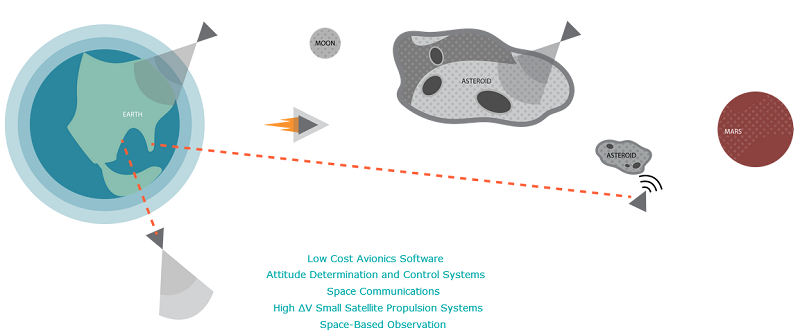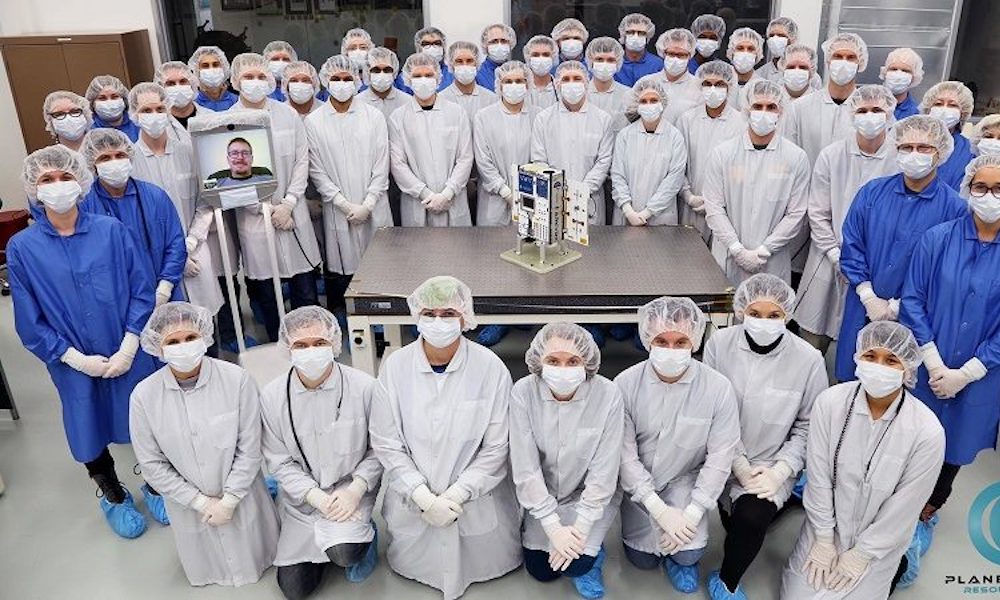Asteroids are kind of like the gold mines of space: many of them contain valuable raw materials. The new space start-up “Planetary Resources” wants to mine these in space and thus completely change space travel.
For Chris Lewicki, everything began on May 25, 2008, when the NASA space probe “Phoenix” landed near the northern polar region on Mars. Lewicki had overseen the mission, his third successful space mission after the Mars rovers “Spirit” and “Opportunity.” But instead of being eager for the next project, the NASA space engineer was bored. For Chris Lewicki, it was time to start his very own mission: mining in the universe.
The idea came from his friend Peter Diamandis. The scientist, author and entrepreneur was looking for a managing director for his latest start-up, Planetary Resources. The new space company, headquartered in Washington, DC, is the first company in the world to mine asteroids in the universe.
Pure, simple, cheaper
More than 700,000 asteroids circle around our solar system. Some of them are tiny, others have a diameter of up to 100 kilometers. Most are just clumps of dirt. But there are also asteroids which contain something like the primordial nucleus of a planet: they are full of metals, usually nickel, iron and platinum. A true treasure trove that could change the world forever, as Chris Lewicki sees it. Just as the industrial revolution has reversed our lives on Earth, the mining of raw materials from asteroids could revolutionize space travel.

According to the company, the raw materials in the asteroids could be even purer and easier to mine than terrestrial ones, and thus also less taxing on the Earth. However, Planetary Resources does not want to bring the raw materials to Earth, but rather use them directly in space. This could completely change the concept of space travel.
Service stations in space
On the one hand, the mineral-containing asteroids could supply raw materials for the construction of equipment in space. As a result, space stations and companies would save on the complex transport of components from Earth to space. The most difficult part of any space mission is to break through the mighty power of the Earth’s gravitational field. The more weight that is aboard a space ship, the more difficult it is.
If one finds the materials needed for building directly in the universe, one doesn’t just save on ballast: construction would also be simpler, since in space, one does not have to deal with the laws of gravity during the construction process. For example, one could build very high structures without problems (at least according to Planetary Resources).
Chris Lewicki has another idea. For example, asteroids contain, in addition to metals, another raw material: water. Lewicki could thus obtain liquid oxygen and hydrogen – and thus fuel for space ships.
Should Planetary Resources actually succeed, this would be one of the biggest changes in space travel. Currently, spaceships need to carry all the fuel they need for a mission from Earth. This is a huge weight factor for every shuttle. If they could “refuel” in space, space travel would be much easier. Which in turn means that they could fly much further – even to the end of our solar system.
Planetary Resources: The big bang
Planetary Resources has already put together a list of promising asteroids, which the startup believes to have the hoped for raw materials. At the top of the list is “Bennu,” an asteroid with a diameter of almost 500 meters, which contains porous coal. This could become the first conveyor for planetary resources.
Planetary Resources has already put together a list of promising asteroids, which the startup believes to be the hoped for raw materials. At the top of the list is “Bennu,” an asteroid with a diameter of almost 500 meters, which contains porous coal. This could become the first conveyor for planetary resources.
Planetary Resources uses various technologies to find out which asteroids are suitable for raw material mining. Among other things, they have developed sensors that can perform a spectral analysis of the elements contained in the asteroid light spectrum. This, however, gives the company only a first idea. To be really safe, Planetary Resources has to send test space ships into space.
So far, however, the startup has not been very successful. The first launch of its own space ship in 2014 exploded with a big bang across the Atlantic. Since then, Chris Lewicki has pursued a new approach. He wants to carry out the next test with several satellites, each equipped with several computers. 2020 is the projected launch date.
Politics are increasing in space mining
The biggest challenge for space start-ups is not technology, but politics. Although former US President Barack Obama made the Space Act a law in 2015, allowing commercial space travel to mine resources in space, most countries around the world are very skeptical of this approach. Only Luxembourg has so far adopted a similar law.
And not only that! The country is a shareholder of Planetary Resources with an investment sum of 25 million euros. Luxembourg is not the only player to rely on space mining. Google’s co-founder Larry Page has also invested money in the start-up.










